Cabbage is a cruciferous vegetable that can be used as a delicious ingredient in all kinds of different dishes. But cabbage is really only harvested in the fall months, so it can be difficult to have fresh cabbage year-round, which can leave you asking can you freeze cabbage?
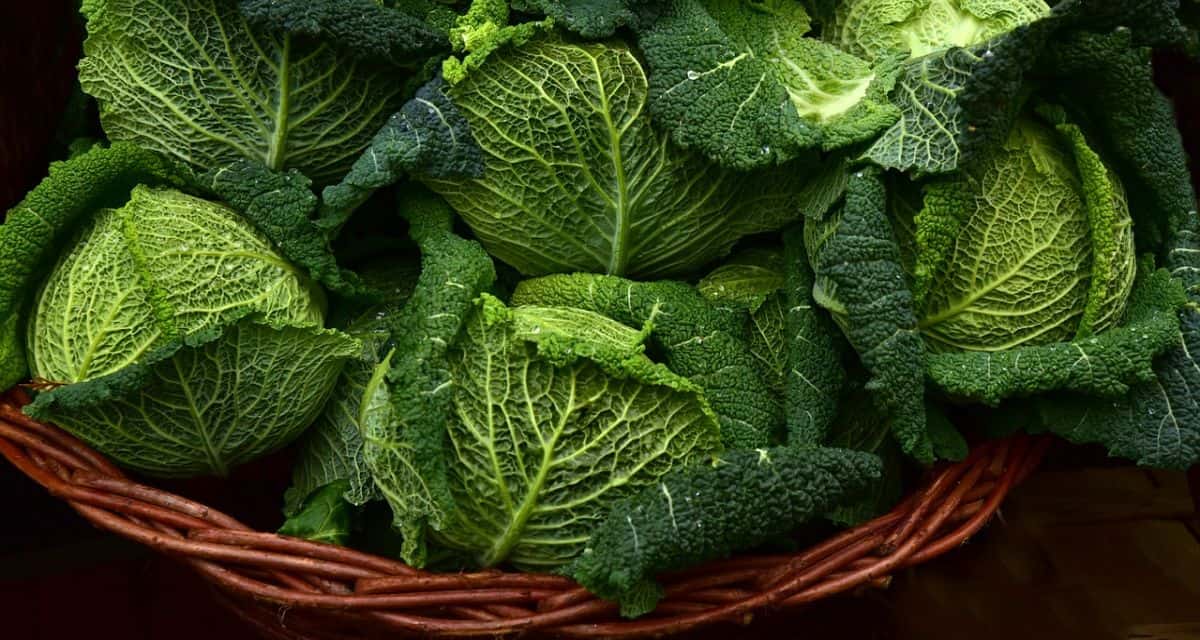
The truth is, you can freeze cabbage, but it isn’t always as straightforward as you may think. Whether you are making homemade ramen with green cabbage, a creamy coleslaw with red cabbage, or maybe a veggie casserole with both–chances are you will need some cabbage.
Read on to find out all about freezing cabbage so you can have the best-tasting cabbage dishes all year long.
Different Ways to Freeze Cabbage
Like anything else in life, there is no one way to freeze cabbage. Exactly what you need to do and when will vary depending on what you intend to make with your cabbage. Here are some of the different ways you can freeze cabbage raw or cooked.
How to Freeze Fresh Cabbage
Have you picked up a ton of fresh cabbage from a local farm? Or maybe from your own garden? Below are the steps you can use to freeze raw cabbage to keep it as fresh as possible.
Instructions
Step 1. Wash your cabbage thoroughly to rid it of any dirt, bugs, or other grime. Take off the outside leaves and submerge the whole cabbage in a large pot of cold water.
Step 2. Leave the raw cabbage submerged for a full 30 minutes.
Step 3. Remove the whole cabbage from the water, shake it, then set it on a paper towel to dry.
Step 4. Cut your cabbage and place it in boiling water for 2 minutes. Then immediately place in an ice bath.
Step 5. After blanching your cabbage, remove it from the ice-cold water and shake to remove excess water a second time. Place the cabbage on a parchment-lined baking sheet and place it in the freezer immediately.
Step 6. Give the blanched cabbage 6 to 10 hours to flash freeze, then pull it out and put it in the container you plan to store it in, such as freezer bags or a plastic bag. Ensure this container is closed tightly and return to the freezer.
And just like that, now you have some frozen cabbage to pull out whenever you need it for a recipe.
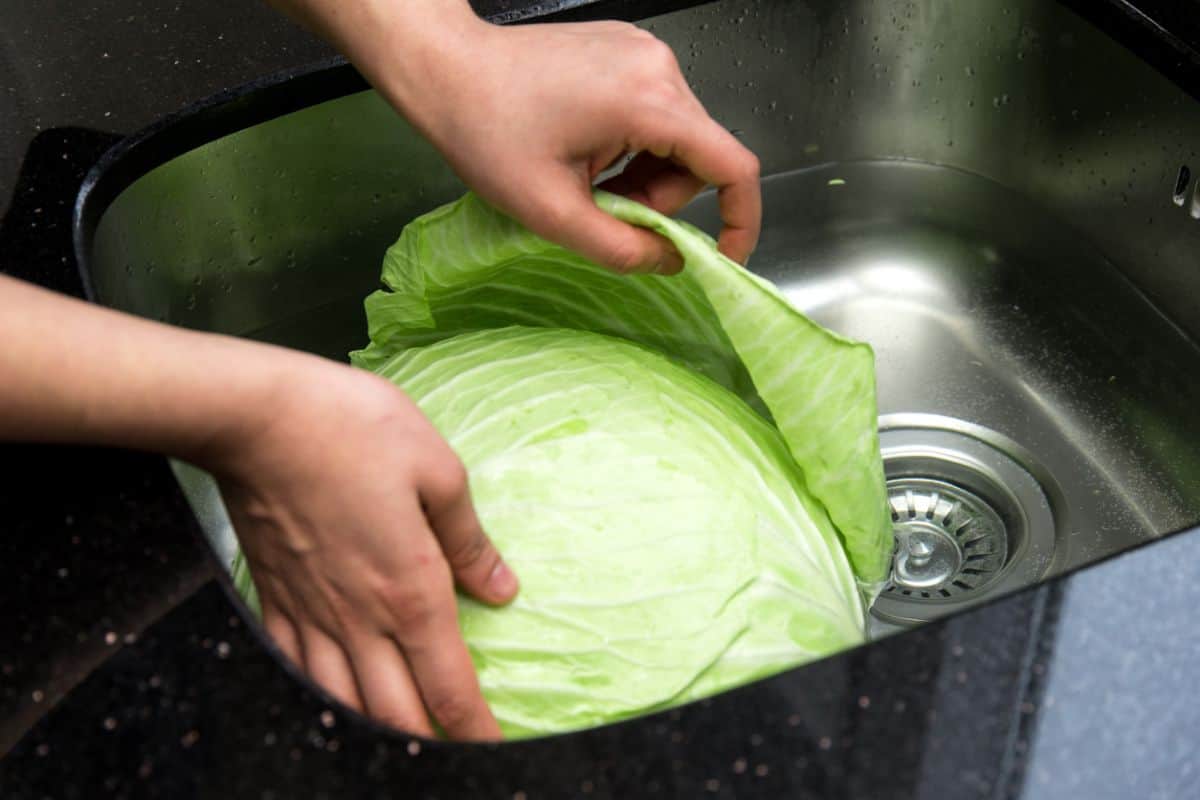
How to Freeze Cabbage Without Blanching it
Maybe you are reading the above instructions and thinking it will just be too many steps to freeze cabbage if you have to blanch it. Not to worry, as you don’t have to blanch cabbage before you freeze it.
Here’s how to freeze cabbage raw.
Instructions
Step 1. Wash the raw cabbage under cool water to rid it of any bugs, dust, or dirt. Next, place the cabbage in a container of cool water and allow it to soak for at least an hour.
Step 2. Remove the outer leaves from the cabbage as these are often old and can be yellowed. Removing the outer leaves of your cabbage can help to extend its shelf life when frozen.
Step 3. While you can place the entire cabbage head in your freezer, this will take up a lot of room. Take the time now to cut the cabbage on a cutting board into the shape/size you want it to be in when you store it. You can chop it, shred it, or make it into cabbage wedges.
Step 4. This is why you need to consider what you will use the cabbage for before you freeze it. Because if you want to make something like cabbage rolls, chopping your cabbage before freezing it isn’t going to work.
Step 5. Put your cabbage wedges or whole cabbage in a freezer-safe container, such as a bowl covered with plastic wrap, or freezer bags then place it in the freezer and allow it to freeze overnight.
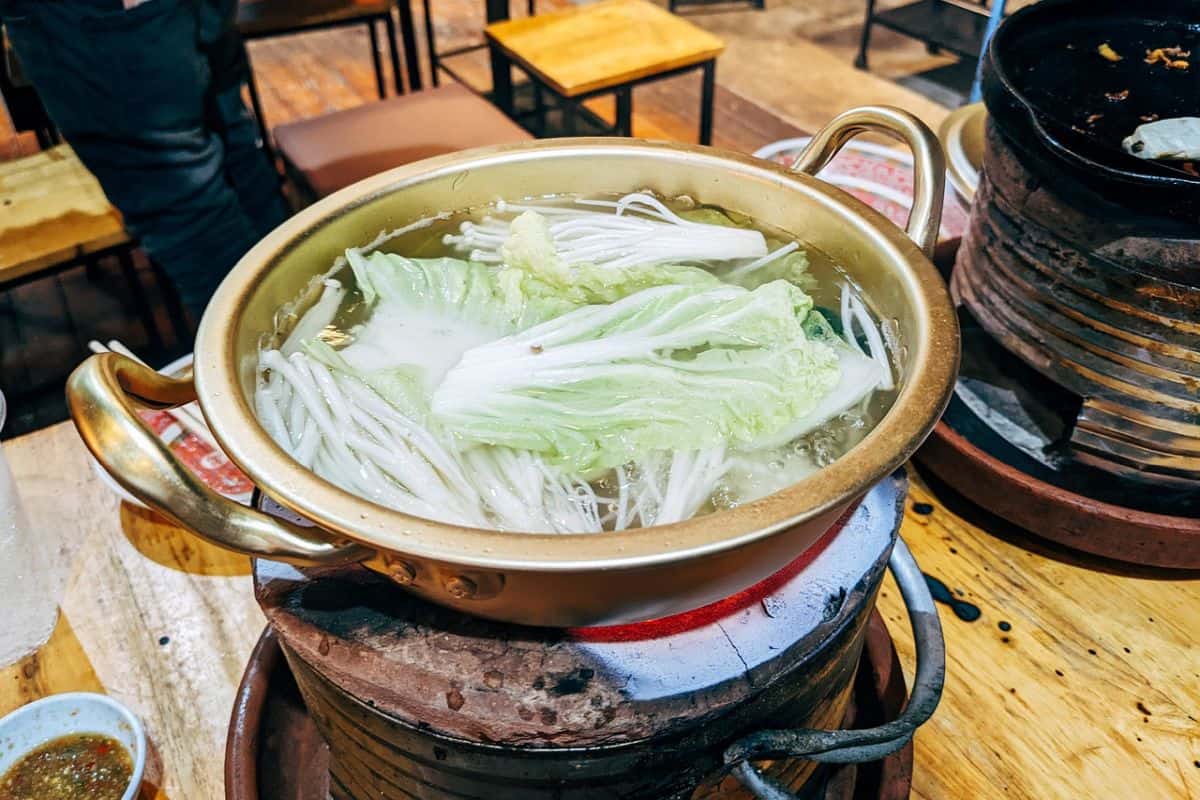
How to Freeze Cooked Cabbage
Have you already cooked your cabbage but made a little too much? You can freeze it too.
Read the following steps for freezing cooked cabbage.
Instructions
Step 1. Let the cooked cabbage dish you made cool completely. Allow it to dry if it was moist, such as a boiled bok choy.
Step 2. Once it is room temperature, transfer your cabbage to a freezer-safe container, like a plastic bag, ensuring it is air-tight.
Step 3. Put your cooked cabbage in the freezer and allow it to freeze completely. Cabbage will stay good using this method for 3-5 months.
Step 4. Do note, however, if your cabbage dish contains other ingredients, like the tomatoes found in cabbage rolls, you need to consider the shelf life of these dishes before you place your cabbage in the freezer long term.
How to Store Cabbage in the Freezer
Obviously, you can’t just stick a head of cabbage in the freezer. Not only does this take up a lot of space, but it won’t stay fresh.
It may also cause your cabbage to get freezer burn.
Instead, you should invest in methods to properly store your cabbage in the freezer.
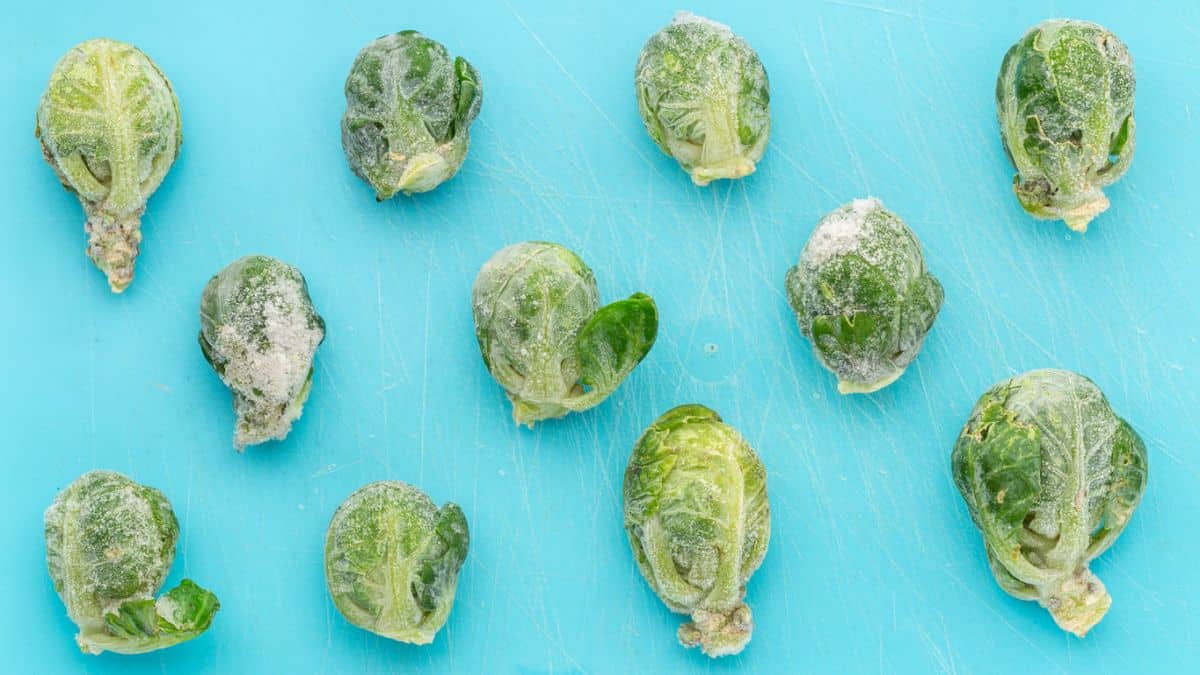
Freezer Safe Containers
A freezer-safe container is essential when freezing cabbage. Any type of container that seals and keeps the moisture from causing your cabbage to freezer burn is considered a freezer-safe container.
Placing your cabbage in the proper container can help extend its shelf life.
Here are some examples of an airtight container:
- Freezer Bags
- Plastic Container (Like Tupperware)
- Plastic Bag (Like Ziploc)
- Large bowl covered tightly with plastic wrap
- Vacuum Sealed Pouch
Refrigerating Cabbage
Although freezing cabbage is very easy, so is keeping it in the fridge. As long as you plan to consume your cabbage within 5 days, keeping it in the fridge will be just fine.
Here are a few things to keep in mind when storing cabbage in the fridge.
Keep it in the Vegetable Area
Cabbage is a versatile vegetable but tends to do better when kept in the crisper drawer in the fridge. If you consume a lot of veggies, there may not be room for your full cabbage heads.
So you should consider chopping your cabbage into shredded cabbage before storing it in the fridge.
Place it in a Freezer Bag
Even though it isn’t going in the freezer, it’s always best to keep your cabbage in an air-tight container.
A freezer bag is a great option, as this will keep your cabbage fresh so you can put it in all your favorite recipes.
How to Use Frozen Cabbage
One thing you should know about frozen cabbage is that when you thaw it, the consistency of the cabbage may change. And the same happens during the cooking process.
Instead of being crisp as it was when it was fresh, it may be a little softer.
Therefore, many people choose to use frozen cabbage in cabbage soup, or as stuffing for cabbage rolls.
Here’s how to use frozen cabbage in a soup.
Instructions
Step 1. When making soup with frozen cabbage, there is no need to thaw before you begin. Instead, simply boil water in a large pot and begin putting together your broth.
Step 2. As you add the rest of the vegetables in your recipe to the soup, pull the chopped cabbage directly out of the fridge and place it in the soup.
Step 3. Frozen cabbage tastes best when it is cooked fully, so before you serve your soup, be sure to taste a piece of the chopped cabbage to ensure it is cooked all the way through.
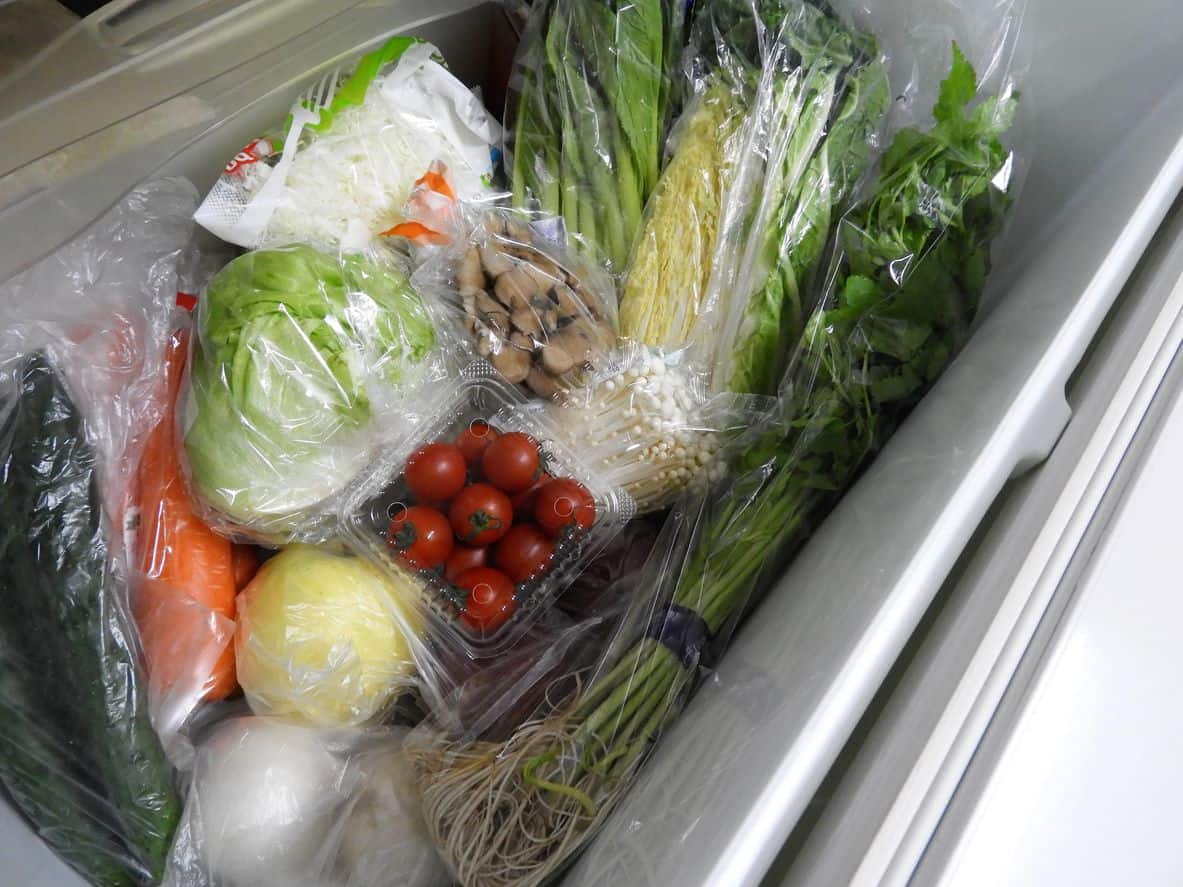
How to Thaw Frozen Cabbage
For those making stuffed cabbage rolls or stir fry, you may find that you need to thaw cabbage before adding it to the recipe.
Thawing your cabbage is easy. Simply remove it from the freezer 3-4 hours before you plan to eat it.
Cabbage is very thin and thaws quickly but you can allow it to thaw overnight if you so choose.
How to Reheat Frozen Cabbage
There are a couple of different ways you can reheat frozen cabbage, the best of which is by placing the frozen cabbage in your oven. Here is how you do so.
Instructions
Step 1. Preheat your oven to 350 degrees Fahrenheit.
Step 2. Place cabbage on an oven tray lined with aluminum foil. If you are going to add a sauce to your cabbage, it’s a good idea to add it now.
Step 3. Bake your cabbage for 5-10 minutes or until the desired consistency is reached. If you are making cabbage rolls, they will take significantly longer to reheat than shredded cabbage will.
How to Tell if Cabbage Has Gone Bad
Worried some cabbage you have frozen may have gone bad? It’s possible, as even with a long shelf life if you don’t use frozen cooked cabbage in time, it will go bad.
The number one way to know that cabbage has gone bad is by smelling it. Does it smell like decay or ammonia? Then it has definitely gone bad.
Those without a good nose may struggle with smelling to see if cabbage is bad. You can verify your concerns by cutting open your whole cabbage head with a sharp knife to take a look at the inside.
If any of the leaves are greyish, black, or look like they are decaying, then it’s time to toss the cabbage in the trash.
As always, if there are any visible signs of mold or slime on the cabbage, then it is no longer a nutritious food and you should not attempt to consume it.
Can You Freeze Cabbage FAQ
Can You Freeze Cabbage Without Blanching?
It is possible to get a cabbage frozen without blanching it beforehand. Just be aware that cut cabbage that is rinsed and placed directly in the freezer may stick together.
Cut cabbage will not last near as long as shredded cabbage that has been properly blanched.
How Long Does Cabbage Last in the Freezer?
Thanks to the freezing process, cabbage that is blanched which means it was briefly boiled then put directly in ice water) then placed in an airtight container will stay fresh for 3-5 months. Cabbage that is frozen without blanching will only stay good for 1-2 months.
Does Freezing Cabbage Change the Texture?
When you freeze cabbage that has been blanched, there will likely be little or no change to its texture. You should, however, be prepared for frozen cabbage to not be quite as crispy as fresh cabbage once it is thawed.
Is it Better to Freeze Cooked or Raw Cabbage?
Cabbage which has been blanched, which is a type of cooking, retains much more of its vitamins and minerals and lasts far longer in the fridge. For this reason, it is considered much better to freeze cooked, or blanched cabbage rather than just sticking a whole head in the freezer raw.
It is important to note that certain types of cabbage tend to do better in the freezer than others. Green cabbage, red cabbage, and savoy cabbage all seem to withstand the freezing process fairly well.
Can You Freeze Cabbage Conclusion
Overall, if you aren’t yet familiar with cabbage, it’s time to introduce this amazing vegetable into your diet, especially now that you know the answer to can you freeze cabbage, is yes.
Whether you decide to freeze your cabbage using balancing methods, or perhaps just keep it in your refrigerator, you can’t go wrong when it comes to using it in your favorite recipes. So next time you head to the store, don’t be afraid to grab a variety of cabbage heads to keep in your freezer because, after all, they can stay there for 3-5 months.
Leave a Reply